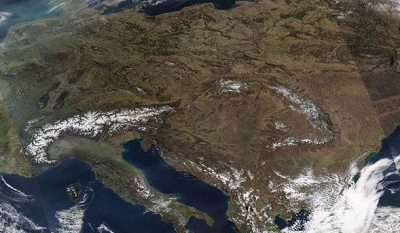New Delhi: A substantial majority of Indians seem convinced that global warming will inevitably cause more epidemics and trigger more natural disasters.
This comes in the wake of the once in a century Covid pandemic that has so far killed 6.54 million people across the world according to the World Health Organisation. In addition, a series of ‘calamitous’ events in recent years across the world that have been covered by the media seem to have persuaded a majority of Indians (81 per cent) that global warming is something they should worry about.
This was revealed by a nationwide survey conducted by CVoter on behalf of the Yale Program of Climate Change Communication. The survey was conducted between October 2021 and January 2022 and covered a scientifically designed random sample size of 4,619 adult Indians who were above 18 years of age.
According to the survey, close to 50 per cent of adult Indians seem to be of the opinion that they are already being harmed by global warming. This is a very big 29 per cent jump compared to late 2011 when a similar survey was conducted.
Speaking on the subject, Dr. Anthony Leiserowitz of Yale University said, “India is already experiencing climate impacts, from record heat waves to severe floods to stronger storms,” adding that while the expected level of awareness is probably missing, Indians overwhelmingly think that climate is changing.
Yashwant Deshmukh of CVoter Foundation observed “Many people in India think global warming will have a variety of dangerous impacts. Half or more think global warming will cause “many more” disease epidemics (59 per cent), extinctions of plant and animal species (54 per cent), severe heat waves (54 per cent), severe cyclones (52 per cent), and droughts and water shortages (50 per cent). More than four in ten respondents think global warming will cause many more famines and food shortages (49 per cent) and severe floods (44 per cent).”
Close to 60 per cent of the respondents said that global warming will lead to an increasing number and frequency of disease epidemics. While a majority of the respondents in India were of the opinion that global warming will trigger more severe heatwaves, every second Indian is convinced it will trigger severe cyclones, and global warming will trigger drought, water shortages and food shortages creating famine-like conditions. About 4 in 10 Indians hold global warming responsible for increasingly severe floods.
Dr. Jagadish Thaker of the University of Auckland, said, “The percentage of people in India who think global warming will have dangerous impacts is higher than in 2011: disease epidemics (+14 percentage points), extinctions of plant and animal species (+6), severe heat waves (+9), severe cyclones (+20), droughts and water shortages (+5), famines and food shortages (+2), and severe floods (+10).”
In the calendar year 2022, the Indian sub continent has actually witnessed a severe heat wave, unprecedented floods, erratic monsoons and a possible drop in the foodgrain harvest. Most people in India say hot days have become more frequent in their local area. A majority of people in India (56 per cent) say hot days have become more frequent in their local area, while 18 per cent say they have become less frequent, and 23 per cent say there has been no change.
Fewer (28 per cent) say that droughts have become more frequent, while 30 per cent say droughts have become less frequent, and 32 per cent say they have not changed.
Similarly, one in four say that severe storms and floods (both 25 per cent) have become more frequent, while more say they have become less frequent (severe storms, 31 per cent; floods, 28 per cent) or have not changed (severe storms, 34 per cent; floods, 30 per cent). Compared to 2011, a higher percentage of people in India now say most of these events have become more frequent in their local area (floods, +11 percentage points; droughts, +8; severe storms, +4).
A majority of people in India say it would take them several months or more to recover from a severe drought or flood. About three in four people in India (74 per cent) say it would take their household several months or more to recover from a severe drought, and more than six in ten (63 per cent) say it would take several months or more to recover from a severe flood.
–IANS


Comments are closed.